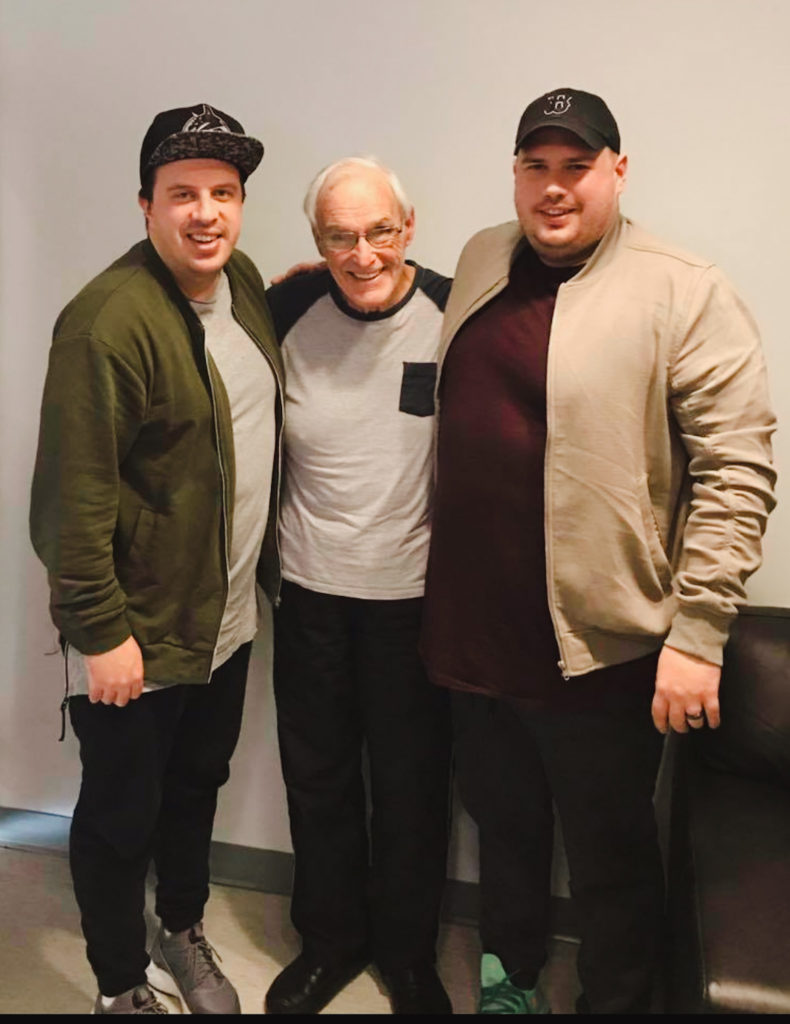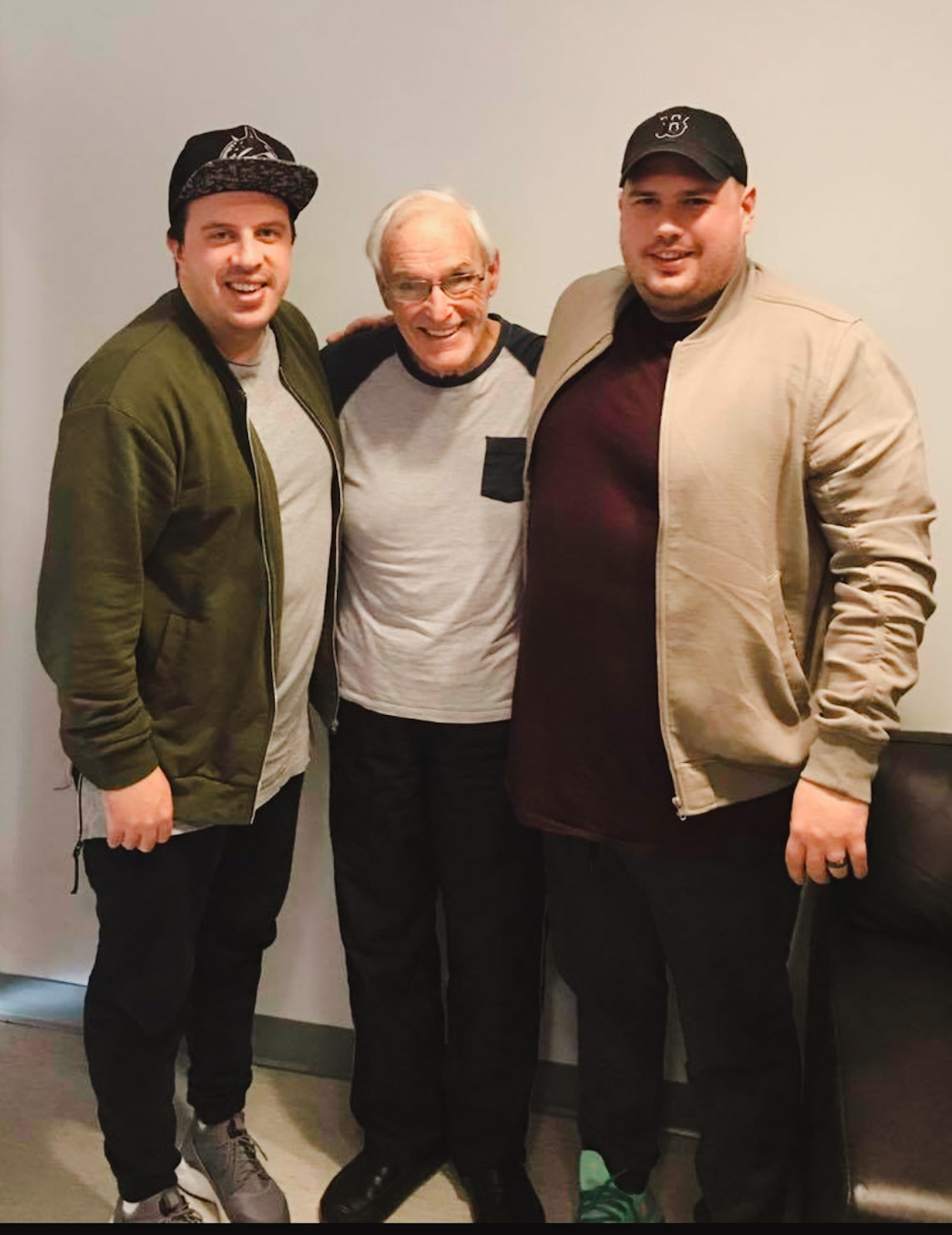I can still smell the hospital room, clean from the kind of bleach only hospitals use, yet still stale. Add to that the sense of sickness that seemed to permeate every hospital room I’d ever been in. But most of all, I remember the sadness. Deep profound sadness as Britney and I spent invaluable moments in Canada with my grandpa who had just experienced a heart attack, the beginning of the end of a long fight with Alzheimer’s.
In the surreality of the beeping machines, the nurses responding as certain beeps sounded alarms, and our conversation with Grandpa disjointed, a realization hit me in my gut: this visit right here would be the last time I would see him alive. This hero of mine, this pastor and mentor to many, this titan of faith would very soon pass away.

Lewis Edward Peterson (I have the honor of bearing his name) passed away of another heart attack shortly thereafter. But even in his death, he still had a lesson for me to learn.
It was a couple days later while I was processing my grief with my mentor, Ronnie, and sharing the remarkable role Grandpa had played in my life that he interrupted me with the strangest statement, “What a gift!”
“What gift?!” I was almost offended. “What good could his death be to me?”
“When you were in that hospital room,” he continued. “And you knew this would be the last time you’d see his face, what did you hope he saw in you?”
After several long moments of searching, I answered, “That I valued my family, was healthy and strong, that I was a man of faith. And I hoped he saw that I was growing and developing into what I felt called to do.”
“Good.” Ronnie answered, and then added, “That picture you just described, is that how you are currently living?”
I sank in my chair from the weight of his question. I didn’t want to answer, but Ronnie was a patient guy. He would wait.
“No,” I choked out the painful, but honest, answer. Truth be told, I was stuck in a pit of addiction, that I had successfully kept hidden up to this point, and the shame of that secret was suffocating. And so I ate, filling my stomach with food to silence the shame, which led to even more shame as the weight packed on. The addiction fueled the shame, which fueled the addiction, and it was a brutal cycle. I was not who I hoped my grandpa saw and hadn’t been for a long time.
Like most people, I hadn’t set out to get stuck in this self-destructive cycle; it was simply a result of many choices and beliefs I had developed along the way. Because I lacked the character tools to truly move toward the man and the legacy I wanted to build, I was believing lies and perpetuating a lifestyle to confirm those lies. That day, I decided – no more. This conversation with Ronnie sent me on a journey of introspection and healing as we worked together to establish goals that would honor the core values I deeply desired to live out in my daily life.
This new process of setting goals to honor my core values was in stark contrast to how I had operated to this point. My old pattern would stack like this: Extreme frustration with an area of my life would grow to such a breaking point that I would finally do something about it. For instance, after a night of binging inordinate amounts of food, the shame would fuel grandiose promises of extreme diets and workouts. As I pounded weights in the gym and ate as clean as I knew how, I would begin to experience weight loss. It was working! Every step of success I’d make would decrease my frustration, but because my level of motivation was intricately tied to my level of frustration, as one lowered, so did the other. Soon I’d stop working out all together and end up on a Sunday night blanketed by a dozen Burger King wrappers and Supergulp cups. This led to a rather complicated relationship with myself. Kind of like the friend in high school who was always picking the toxic girlfriends.
The key to cut through this habit of growth and failure, as I realized in that pivotal conversation with Ronnie, was to establish a core set of values for my life. Once I was able to clearly identify the values I held dear, that I desired to anchor my life in, they became the guideposts for every future decision that I would make. For instance, if health (physical, mental, and spiritual) is a core value that I am dedicated to, then now I will begin to move toward health regardless how motivated I feel. I am not doing two-a-days in the gym because I’m so fueled by shame and frustration, I’m doing it because I’m committed to uphold my core value of health. I understand that when I spiral with food, I also spiral in my mental health, and since I value my mental health, I am motivated to eat whole foods and stay disciplined in the gym. Now I am no longer bound to the destructive cycle of shame and frustration, instead I am free to explore the outward limits of myself and my values.
So how do we discover these core values? The process of finding and honoring our core values is established by digging deeply into the following questions:
1. What is the legacy I desire to leave?
Put yourself into the space I was with my grandpa. Someone you deeply love and who loves you is on their death bed. What do you hope the see in you? Let’s go one step further: it is you on the hospital bed, surrounded by those you love and who love you. What do you hope they say you gave your life to? That really mattered to you? The answers to these questions will start to point towards the values and principles that can guide the details and the decisions of our lives.
2. What needs to be true to honor these values?
What are the beliefs, mindsets and behaviors you would need to embody often to ensure that you honor these values? Who do you need to be, in order to leave the legacy you desire? These become the things that we set our goals around.
3. What is the smallest thing I can consistently do starting today that moves me towards the legacy I want to leave?
Where do we start? We start small and repeatable, doing something daily until it becomes a habit. Remember, we are looking to honor these values by growing ourselves over a lifetime. It is OK if the start is slow. Here is an example: I have been an emotional eater most of my life and specifically have a deep appreciation and love for fast food. (When I am stressed, I can still smell a double whopper with cheese, no tomato or pickle.) As Britney and I began the long process of relearning how to relate with food, we set one simple rule: we would only eat food we cooked Monday through Friday. I need you to know that this was a drastic change as we frequently ate out each week.
Saturday finally came that first week, and man, we ate some serious garbage that weekend, but Monday morning, we were back on it. After a few more weeks of honoring this agreement, we realized, eating at home isn’t so bad, and it is saving us money! What if we only ate out once on the weekend? That habit slowly grew into only eating out on special occasions, like date night. Which grew into a love for cooking together as we continued to eat more and more at home, to now eating strictly paleo with about 95% of the food we eat being food we cook ourselves. Our habits grew bit by bit. If five years ago, we simply would’ve made the lofty promise of eating strictly paleo and 95% home-cooked meals, we would’ve completely failed! It was our willingness to start with what we could consistently do and then add (step-by-step) the new habits that eventually changed our lives.
I encourage you to grab a journal, go back and reread those three questions, and jot down your answers. Make yourself accountable to them by sharing them with someone close to you. Establishing a core set of values and committing to live intentionally to uphold them can bring incredible change to every area of your life. Lastly, if you are reading this, and you’re feeling stuck and not sure how to move forward, please reach out. Britney and I would love to talk to you and help you continue forward on the journey of reaching the fullest version of yourself.

Be The First To Comment